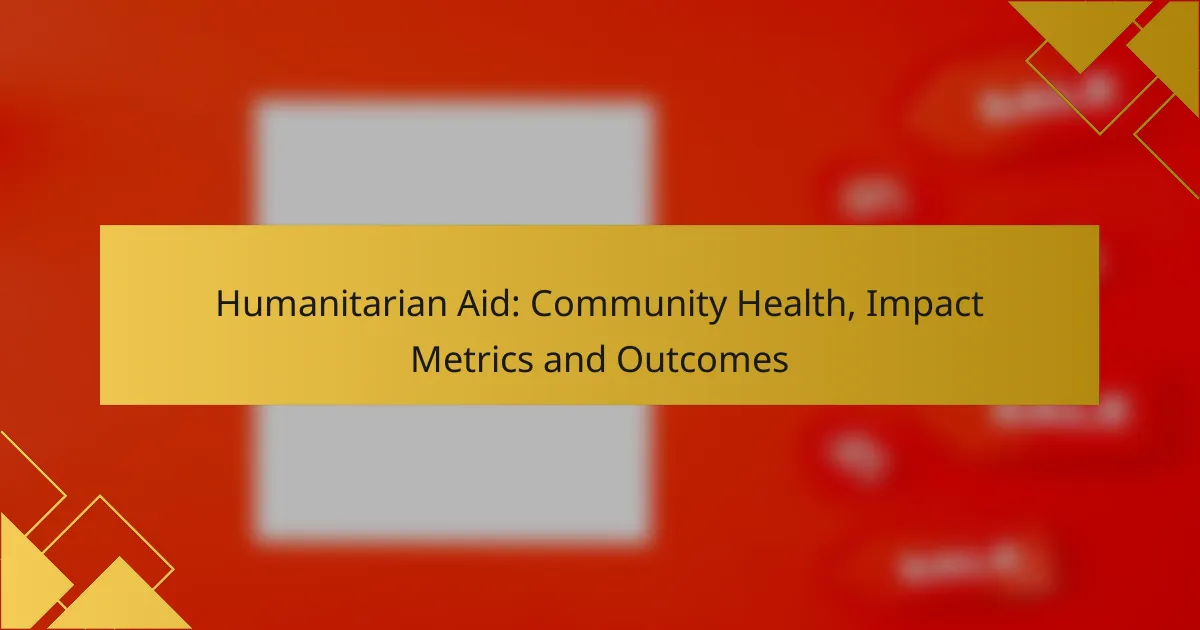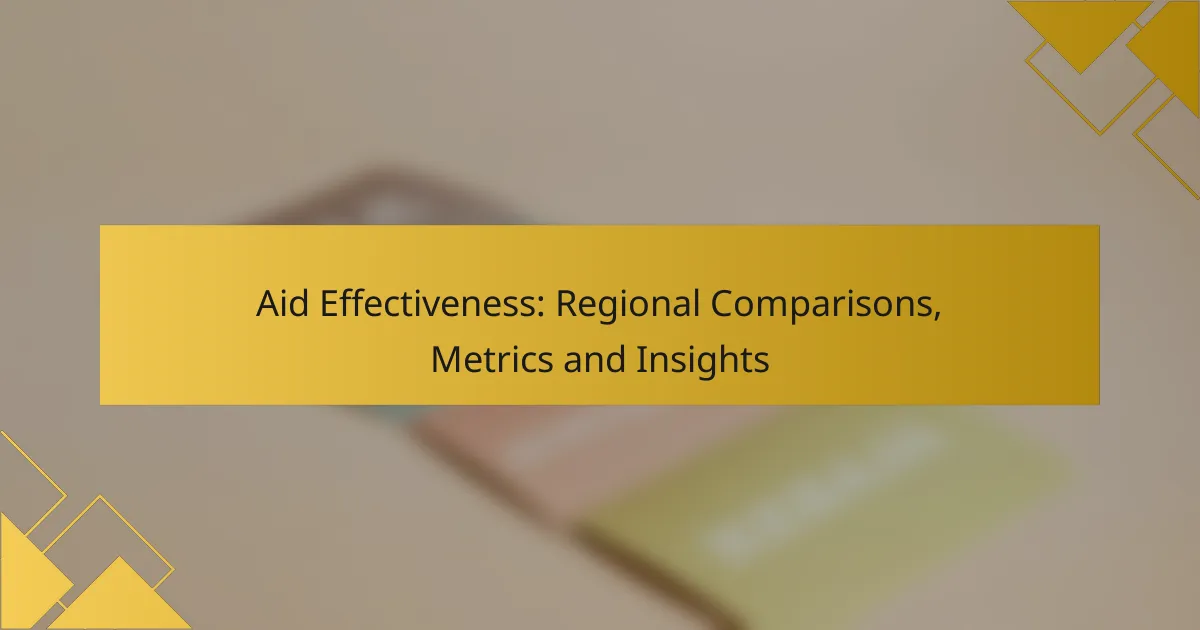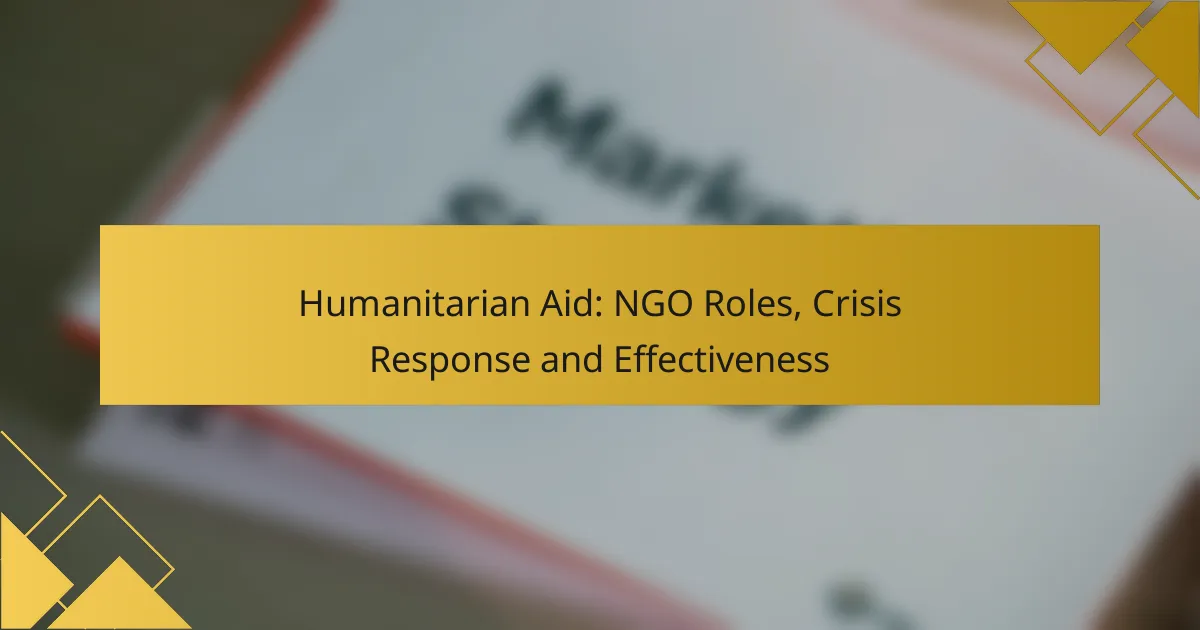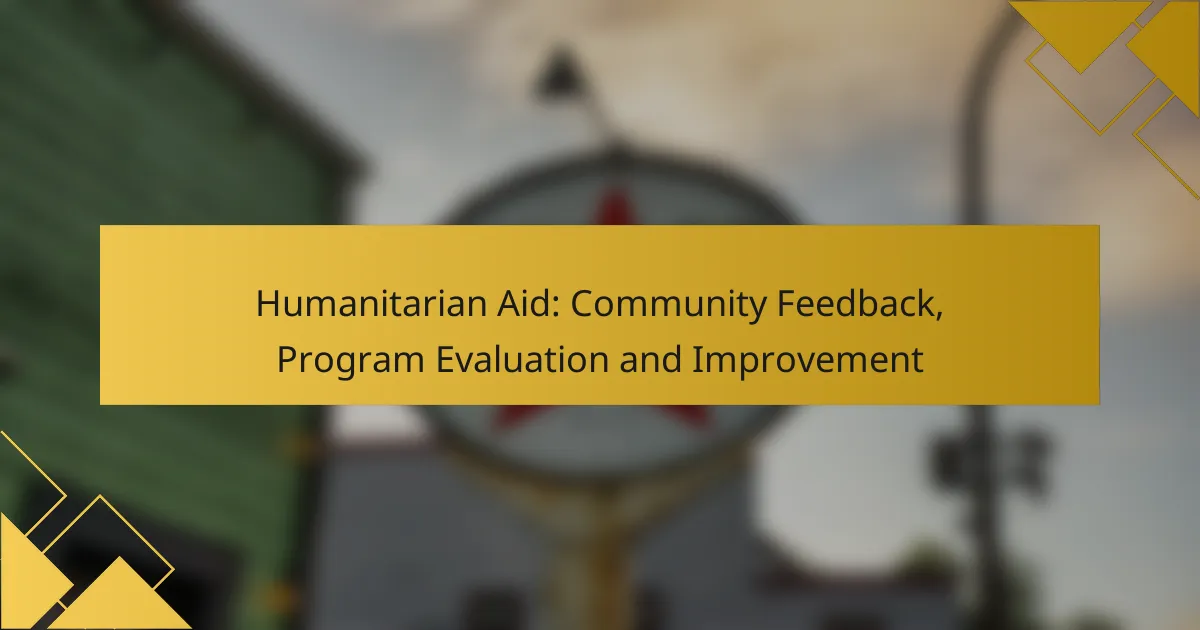Humanitarian aid plays a crucial role in addressing mental health needs during crises, offering vital support that can alleviate stress and foster resilience. In the context of the COVID-19 pandemic, the demand for effective mental health strategies has surged, prompting the adaptation of service delivery methods to meet the psychological challenges faced by affected communities. By integrating telehealth services and peer support networks, humanitarian efforts aim to provide timely and appropriate care to those in need.
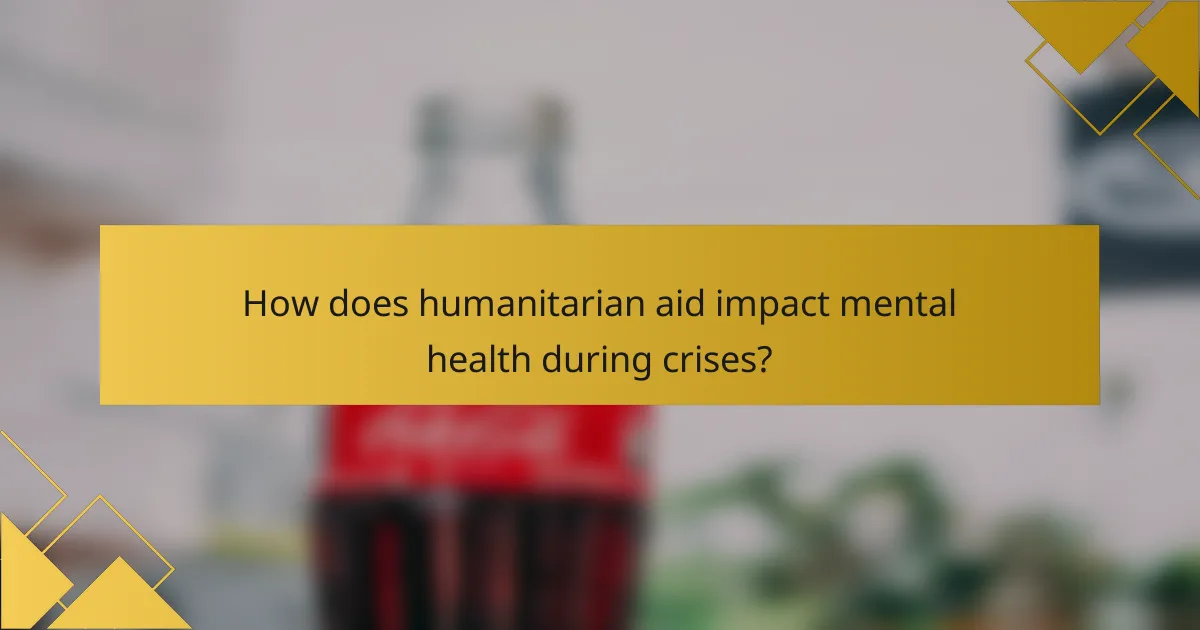
How does humanitarian aid impact mental health during crises?
Humanitarian aid significantly affects mental health during crises by providing essential support and resources to individuals and communities. This assistance can alleviate stress, reduce anxiety, and foster a sense of hope, which is crucial in the aftermath of traumatic events.
Psychological support services
Psychological support services are vital components of humanitarian aid, offering counseling and therapy to those affected by crises. These services can include individual therapy, group counseling, and crisis intervention, tailored to the specific needs of the population.
For effective implementation, organizations often collaborate with local mental health professionals to ensure cultural relevance and accessibility. Providing services in familiar languages and settings can enhance participation and effectiveness.
Community resilience programs
Community resilience programs aim to strengthen social networks and support systems within affected populations. These initiatives often focus on building skills, fostering connections, and promoting collective coping strategies to enhance community well-being.
Examples include workshops on stress management, peer support groups, and community events that encourage social interaction. Such programs can empower individuals, helping them to recover and rebuild their lives together.
Trauma-informed care initiatives
Trauma-informed care initiatives prioritize understanding the impact of trauma on individuals and communities. These approaches ensure that all interactions and services are sensitive to the needs of those who have experienced trauma, promoting safety and trust.
Implementing trauma-informed care involves training staff to recognize signs of trauma and respond appropriately. This can include creating safe environments, offering flexible service options, and incorporating feedback from the community to improve care quality.
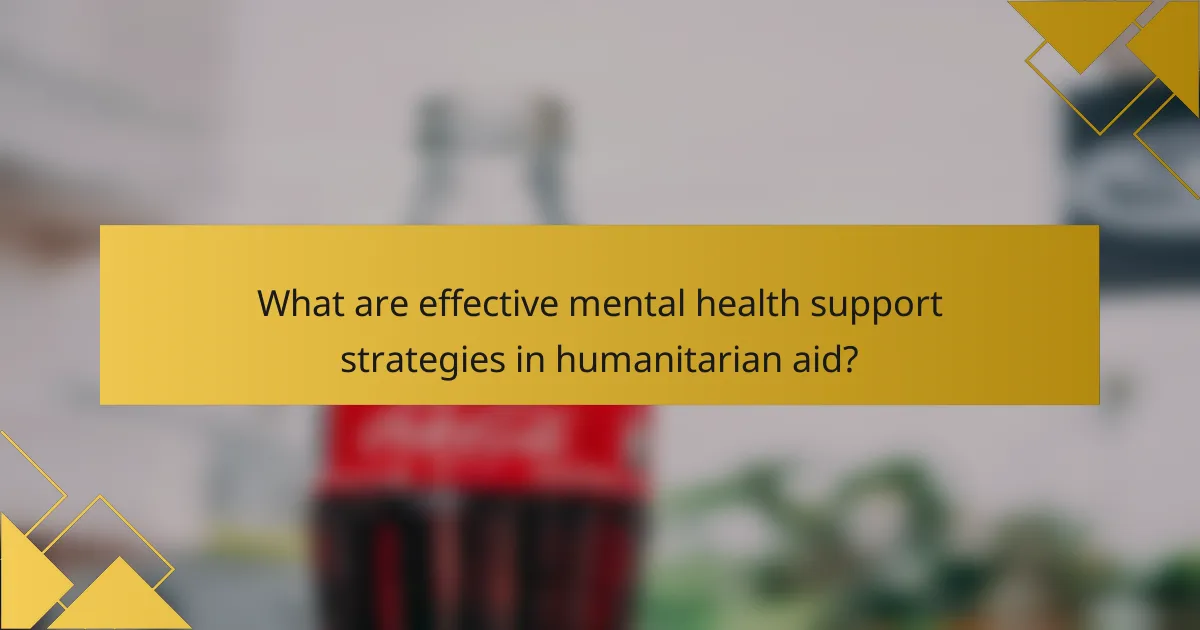
What are effective mental health support strategies in humanitarian aid?
Effective mental health support strategies in humanitarian aid include a combination of telehealth services, peer support networks, and crisis intervention training. These approaches help address the psychological needs of individuals affected by crises, ensuring they receive timely and appropriate care.
Telehealth services
Telehealth services provide remote mental health support, allowing individuals in humanitarian settings to access care without the need for physical travel. This is particularly beneficial in areas with limited healthcare infrastructure or during pandemics when in-person visits may pose risks.
Implementing telehealth requires reliable internet access and trained professionals who can deliver care via video calls or messaging platforms. Organizations should consider local technology availability and ensure that services are culturally sensitive and linguistically appropriate.
Peer support networks
Peer support networks leverage the experiences of individuals who have faced similar challenges, fostering a sense of community and understanding. These networks can be informal groups or structured programs that provide emotional support and practical advice.
To establish effective peer support, organizations should train facilitators in active listening and empathy. Encouraging regular meetings, whether in person or online, can help maintain engagement and strengthen connections among participants.
Crisis intervention training
Crisis intervention training equips humanitarian workers with the skills to identify and respond to mental health crises effectively. This training often includes techniques for de-escalation, active listening, and referral processes to professional care when necessary.
Organizations should prioritize ongoing training and refreshers to keep staff informed about best practices and emerging mental health issues. Regular simulations can help prepare workers for real-life scenarios, ensuring they feel confident and capable in high-stress situations.
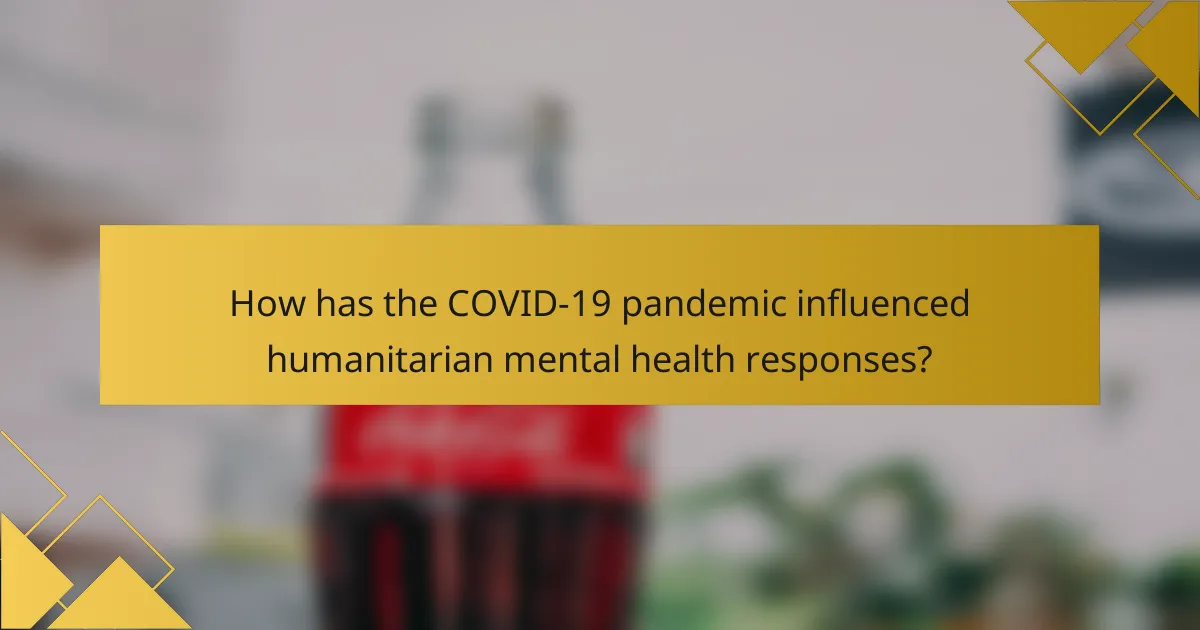
How has the COVID-19 pandemic influenced humanitarian mental health responses?
The COVID-19 pandemic has significantly shaped humanitarian mental health responses by increasing the need for support and adapting service delivery methods. As communities faced unprecedented stressors, mental health resources became essential in addressing the psychological impact of the crisis.
Increased demand for mental health resources
The pandemic has led to a surge in the demand for mental health resources, with many individuals experiencing anxiety, depression, and trauma. Humanitarian organizations have reported that requests for mental health support have increased by substantial margins, often exceeding previous levels.
In response, many organizations have expanded their offerings, including crisis hotlines, online support groups, and community outreach programs. This shift aims to ensure that vulnerable populations receive timely assistance during these challenging times.
Remote counseling adaptations
To meet the growing demand for mental health support, many humanitarian agencies have adapted their services to include remote counseling options. Teletherapy and virtual support groups have become common, allowing individuals to access care from the safety of their homes.
These adaptations have made mental health services more accessible, particularly in areas with limited resources. However, challenges such as technology barriers and privacy concerns must be addressed to ensure effective support.
Integration of mental health in pandemic response
Integrating mental health into broader pandemic response strategies has become a priority for many humanitarian organizations. This approach recognizes that mental well-being is crucial for recovery and resilience during crises.
Effective integration involves training frontline workers to identify and address mental health issues, as well as incorporating mental health considerations into public health messaging. By doing so, organizations can provide comprehensive support that addresses both physical and psychological needs during the pandemic.
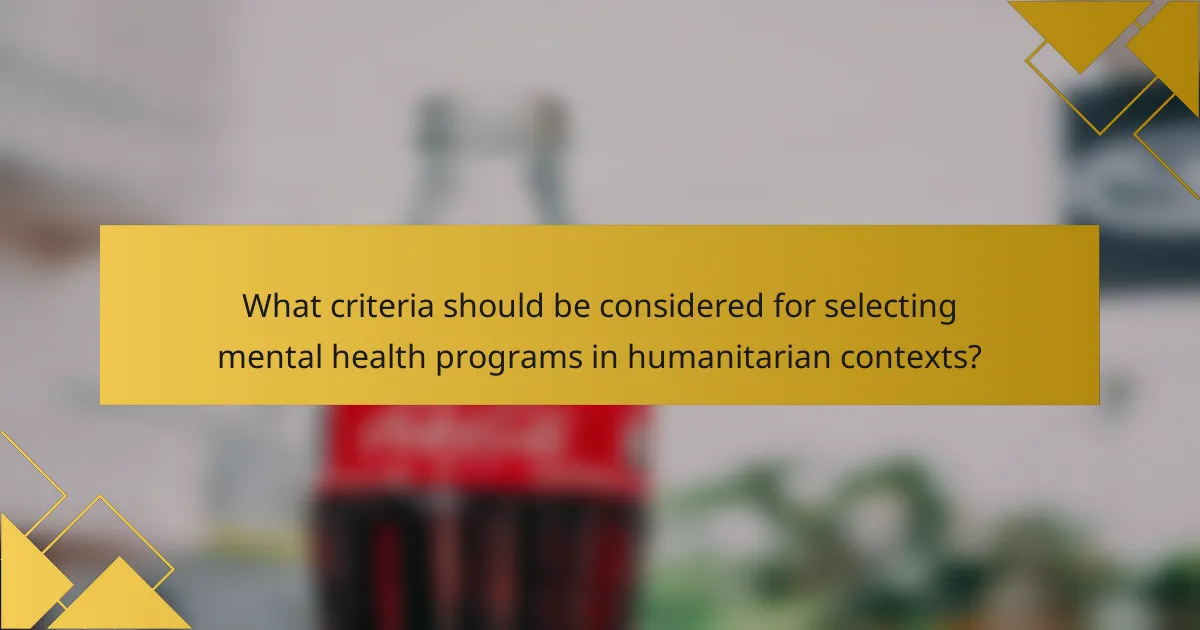
What criteria should be considered for selecting mental health programs in humanitarian contexts?
Selecting mental health programs in humanitarian contexts requires careful consideration of cultural relevance, evidence-based practices, and accessibility. These criteria ensure that interventions are effective, respectful, and within reach for affected populations.
Cultural competence
Cultural competence is essential for mental health programs to resonate with diverse populations. Programs should be tailored to the cultural beliefs, values, and practices of the community they serve. This may involve employing local mental health professionals who understand the cultural context and can communicate effectively with participants.
For example, integrating traditional healing practices with modern psychological approaches can enhance acceptance and effectiveness. Programs that disregard cultural nuances risk alienating individuals and failing to address their specific mental health needs.
Evidence-based practices
Evidence-based practices are crucial for ensuring that mental health interventions are effective and reliable. Programs should be grounded in research that demonstrates their efficacy in similar contexts. This includes utilizing therapeutic methods that have been validated through clinical trials or community studies.
For instance, cognitive-behavioral therapy (CBT) has shown effectiveness in various settings and can be adapted for use in humanitarian crises. Implementing practices backed by evidence helps build trust and encourages participation among affected individuals.
Accessibility and affordability
Accessibility and affordability are key factors in the selection of mental health programs. Programs must be designed to reach vulnerable populations, often in remote or underserved areas. This can involve mobile clinics, telehealth options, or community-based support groups that reduce barriers to access.
Affordability is equally important; programs should be free or low-cost to ensure that financial constraints do not prevent individuals from seeking help. Collaborating with local organizations can help secure funding and resources, making mental health support more attainable for those in need.
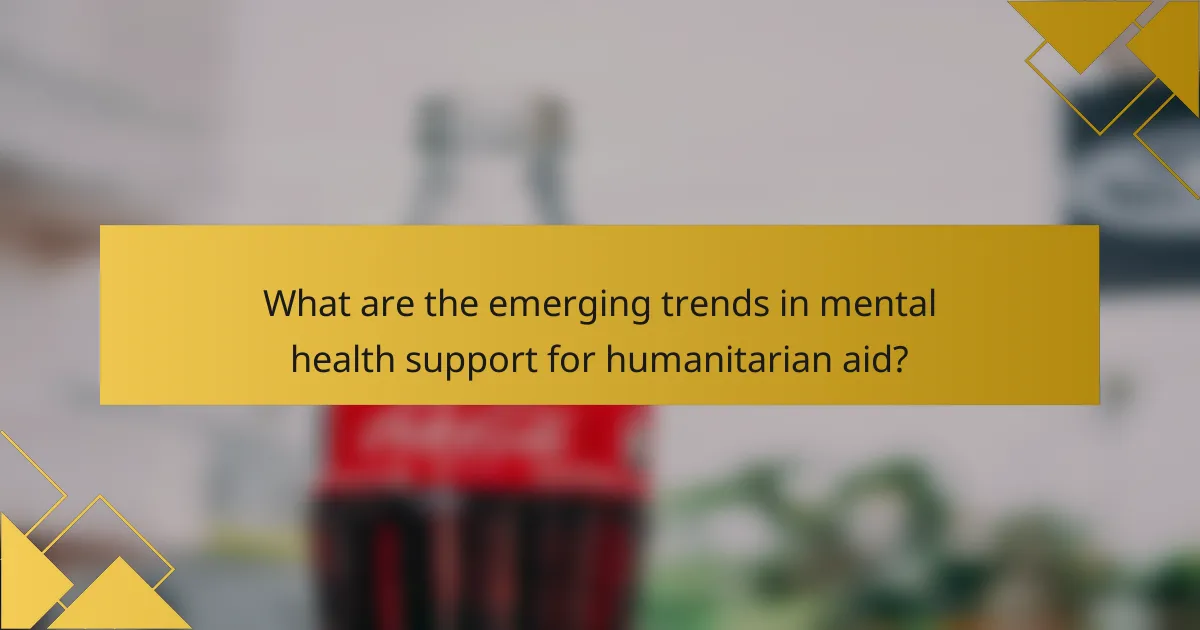
What are the emerging trends in mental health support for humanitarian aid?
Emerging trends in mental health support for humanitarian aid focus on integrating innovative solutions, emphasizing long-term recovery, and fostering collaboration with local organizations. These trends aim to enhance the effectiveness and sustainability of mental health interventions in crisis situations.
Use of technology in mental health
The use of technology in mental health support has gained traction, particularly through teletherapy and mobile applications. These tools provide accessible mental health resources to individuals in remote or underserved areas, allowing for real-time support and communication.
For example, platforms like WhatsApp or dedicated mental health apps can facilitate counseling sessions and provide coping resources. However, it is crucial to ensure that these technologies are user-friendly and culturally appropriate to maximize their impact.
Focus on long-term mental health recovery
Long-term mental health recovery is increasingly prioritized in humanitarian aid, recognizing that immediate interventions are often insufficient. Programs are now designed to support ongoing mental health needs, incorporating follow-up care and community-based support systems.
Effective long-term strategies may include training local mental health professionals and creating peer support networks. This approach not only addresses immediate crises but also builds resilience within communities, fostering sustainable mental health practices.
Collaborative approaches with local organizations
Collaborating with local organizations is essential for effective mental health support in humanitarian settings. Local entities possess valuable insights into cultural contexts and community needs, which can enhance the relevance and acceptance of mental health initiatives.
Partnerships can take various forms, such as joint training programs for mental health workers or shared resources for community outreach. Engaging local organizations ensures that mental health interventions are tailored to the specific challenges faced by communities, improving overall outcomes.
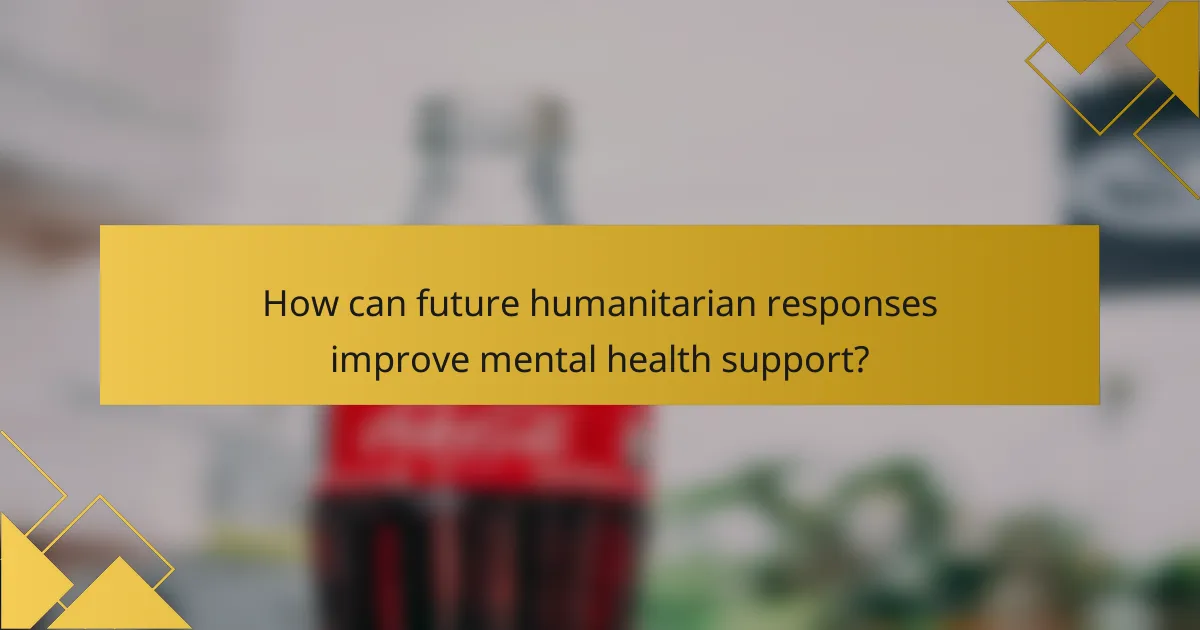
How can future humanitarian responses improve mental health support?
Future humanitarian responses can enhance mental health support by prioritizing training for local professionals, integrating mental health services into emergency frameworks, and ensuring ongoing funding for mental health initiatives. By addressing these areas, organizations can create a more resilient support system for affected populations.
Investment in mental health training
Investing in mental health training is crucial for effective humanitarian responses. Training local healthcare providers and community leaders in mental health first aid and trauma-informed care can significantly improve the quality of support offered during crises.
Programs should focus on practical skills, such as recognizing mental health issues, providing basic counseling, and knowing when to refer individuals to specialized services. This approach not only empowers local staff but also fosters trust within communities, making it easier for individuals to seek help.
Organizations can consider partnerships with universities or mental health organizations to develop tailored training modules. Additionally, ongoing training and refresher courses can help maintain high standards and adapt to evolving needs in crisis situations.







